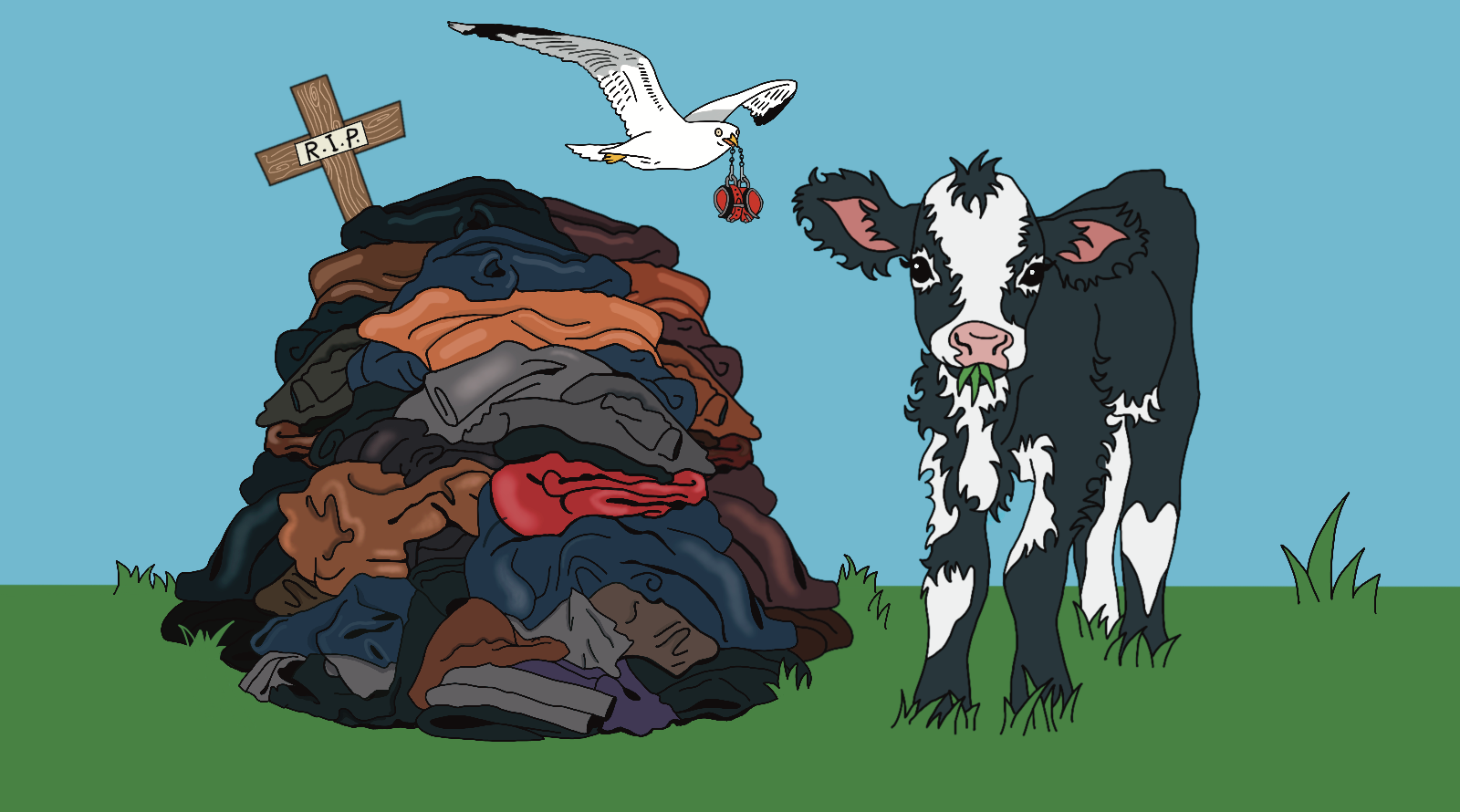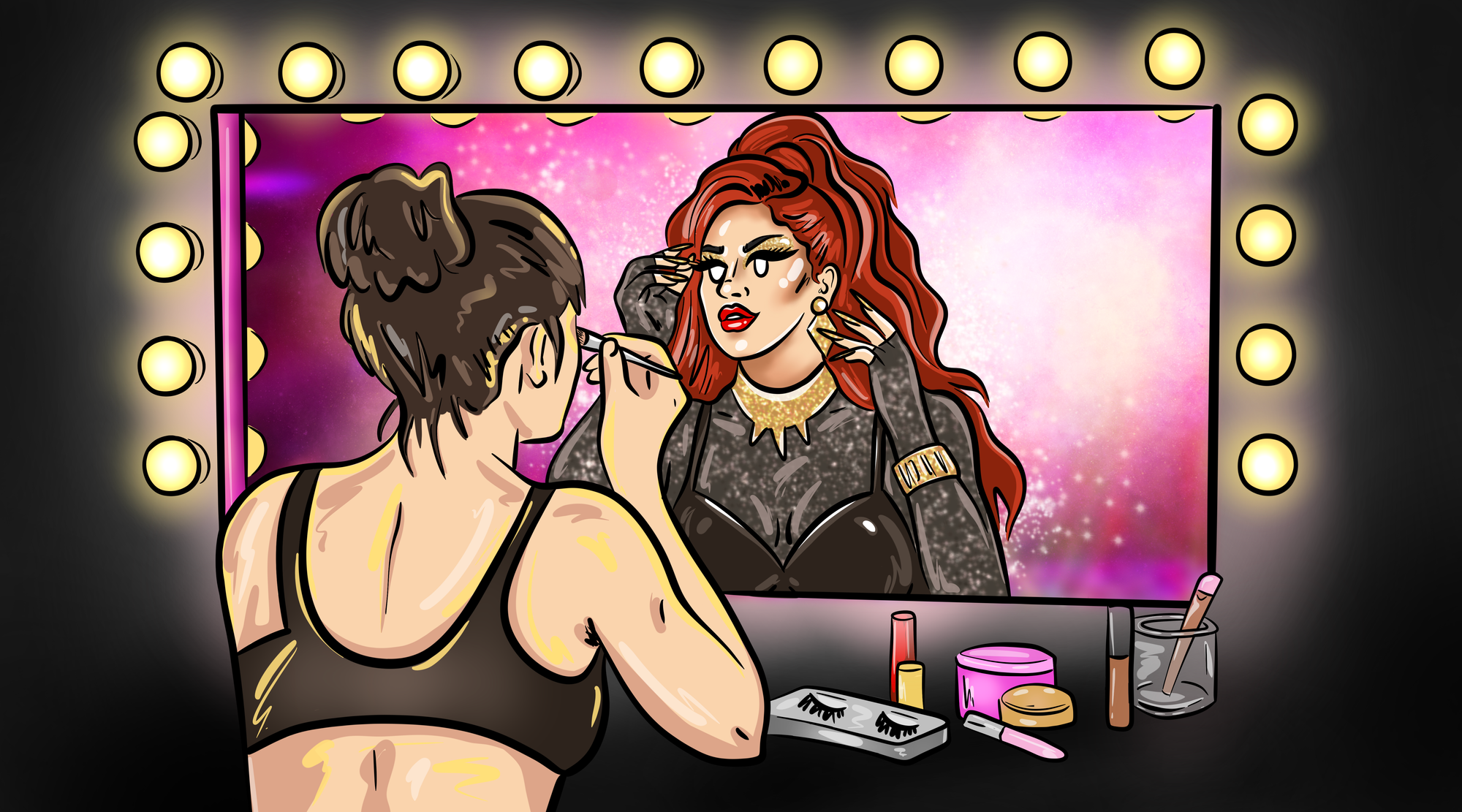“A vegan diet is probably the single biggest way to reduce your impact on planet Earth, not just greenhouse gasses, but global acidification, eutrophication, land use and water use […] Avoiding consumption of animal products delivers far better environmental benefits than trying to purchase sustainable meat and dairy (1).”
– Joseph Poore, Environmental Science Researcher, University of Oxford
If someone’s diet – and wardrobe – still includes animal products in 2024, it would be fair to assume they’re likely aware of the effects their choices have on the environment. Seeing as we live in a golden age of information, where advertising, political ideologies, statistics, and news flash by on our screens every minute of the day, it would be near impossible to have missed the discourse surrounding veganism over the last decade. Due to a rising collective awareness of the need for sustainability, it’s unsurprising there’s been a spike in vegan leather goods being brought onto the market. As the world has slowly begun to realise the drastic consequences of our consumerism, fashion brands across the board have leaned into eco-friendly campaigns, collections and fabrics. If anything, designers who have remained unflinchingly loyal to real leather in recent years are an anomaly.
Although there are a large number of luxury fashion brands that have taken the initiative to focus on sustainable materials, it’s important to know you can afford to make more environmentally friendly choices on any budget. Online retail giants such as ASOS, Amazon and Target have a massive range of faux leather goods. However, it’s important to note the majority of ‘vegan leather’ widely available on a lower budget isn’t exactly the plant-based material you might be hoping for. The most popular variations of vegan leather are made from petroleum-based plastics, widely referred to as PVC Leather (polyvinyl chloride) and PU Leather (polyurethane). The long list of sexual accessories that are now made from vegan leather are also typically made from either of these fabrics.
As a vegan sex worker, I’m often asked where to buy vegan leather restraints, furniture and clothing. A host of eco-friendly perverts are looking to do their bit to save the planet, but unfortunately I haven’t found many genuinely plant-based alternatives to the widely available plastic-based fabrics. The debate on whether real leather or plastic-based faux leathers are more damaging to the environment continues to rage. Nevertheless it is worth noting that in 2018, The Environmental Profit & Loss – a sustainability report published by Kering – found the impact of vegan leather production to be up to three times lower than that of real leather. Whether you decide to invest in sustainably made vegan materials, or opt for the more affordable PU and PVC kinds, there is a world of options at your fingertips.
With the majority of evidence positively leaning towards an animal free wardrobe, let’s take a look at the companies paving the way for viable leather substitutes. Currently on the market are vegan leathers made from a wide variety of natural resources. Cork, pineapple, mushroom, cactus, and apples are among the materials used to imitate the texture, weight, and look of real leather. Each has their individual strengths and weaknesses, providing a considerably more sustainable option than animal leather. At the forefront of this ever-expanding industry are many passionate companies whose entire ethos centres around the future health of our environment. Personally, I feel much better about giving my money to businesses that take transparent responsibility for the amount, and quality, of products they’re releasing into the world.
Mycoworks make vegan leather out of mushrooms. Based in California, the company was born from the mind of artist Philip Ross, who first began to use mycelium in the nineties. Ross’ initial relationship with mushrooms began in San Francisco during the AIDS epidemic, where he worked as a hospice caregiver. After realising the medicinal qualities of reishi mushrooms in particular, he fell in love with the great range of beauty the mushrooms showcased as he watched them grow. Fast forward to today, Ross’ fascination and use of reishi mushrooms as an art medium has grown into one of the companies at the forefront of the vegan leather industry. The leather alternative the company produces – Reishi – is used by an impressive host of independent designers, artists, and luxury goods brands such as Hermès and French furniture house Ligne Roset.
Mycoworks began as a passion project for one individual, as did Ananas Anam – the home of Piñatex and Piñayarn – leather made from the fibre of pineapple leaves. Around thirty years ago, while working as a leathergoods expert, Dr Carmen Hijosa felt compelled to begin working on a plant-based alternative. After seeing firsthand the catastrophic impact leather production was having on the environment worldwide, she became dedicated in her quest to create a durable fabric from natural resources. Piñatex and Piñayarn are mostly used in the production of shoes, bags and accessories. A few notable companies currently using the fabric include NAE Vegan Shoes, Rahui London, Svala, and fashion giant Hugo Boss. Other luxury brands that regularly work with vegan leather include Givenchy and Louis Vuitton. In 2023, Gucci collaborated with long-time vegan singer Billie Eilish to reproduce their 1955 HorseBit Bag using Demetra, an eco-friendly leather alternative produced by Gucci themselves. Before Demetra’s development, another celebrity collaboration that brought vegan leather to the masses was Ashoka Paris’ collection designed with the help of none other than blonde bombshell and fierce animal activist, Pamela Anderson. This same French brand was awarded by PETA, the largest animal rights organisation in the world, for their consistent and hard work towards a sustainable and cruelty-free future.
The small collection of bags released in collaboration with Anderson are made from apple leather and have sold out multiple times since their release. However, when it comes to the pinnacle of sustainable fashion using leather alternatives, we can turn to Stella McCartney. Long before the majority of other designers even began to think about embracing leather alternatives, Stella McCartney was paving the way. As a lifelong vegetarian heavily inspired by her mother’s animal activism throughout her life, Stella McCartney has never used animal skin, in any form, since the brand's inception in 2001.
Although the world often seems impossibly bleak these days, there is an entire network of sustainable brands and businesses that are fully dedicated to facing the climate crisis. Desserto, yet another vegan leather manufacturer, was founded less than ten years ago by two men who have relentlessly researched and worked towards the development of their PETA-approved cactus-based material. This exciting new leather substitute has taken the fashion world by storm. Its exceptional durability has made it an incredibly popular choice for designers worldwide.
Alongside the examples I have suggested, there are many more available. Bananatex, made from – you guessed it – banana plants, originates from the Philippines, and has been used by H&M since 2021.
Mirium can also be added to the list, even though its accolades place it high above the other fabrics mentioned, due to its entirely plastic-free composition. This leather alternative is used by Louis Vuitton, aforementioned ethical fashion queen Stella McCartney, and more recently it has been used to furnish the interiors of BMW automobiles. My favourite find during my vegan journey so far though has to be Nooch Footwear, a small company that is currently in the process of sending out their very first collection. Completely free from plastics (including the laces!), fully biodegradable footwear that can be planted in the ground once you’re finished with them. It doesn’t get much more sustainable than that.
The future of fashion isn’t doomed. With each week that passes, more ethical choices are being made in boardrooms that will eventually trickle down into our bargain stores. The steep rise in demand for animal leather alternatives tells us we’re on the right track. Don’t shy away from educating yourself about your fashion consumption. One of the hardest things we can do as individuals is hold ourselves accountable for the choices we make that negatively impact not only our immediate environments but also the world. As more brands begin to embrace plant-based materials, more choice will be created. The use of vegan leather will expand into every industry within our lifetimes. There will be sustainable fashion in the wardrobes of every fashionista to walk the Earth – and vegan fetish accoutrement for every pervert too! Be part of changing history and saving our planet. Choose vegan leather today.
Check out this article on the best vegan leather kink accessories!
Are you a sex worker with a story, opinion, news, or tips to share? We'd love to hear from you!
We started the tryst.link sex worker blog to help amplify those who aren't handed the mic and bring attention to the issues ya'll care about the most. Got a tale to tell? 👇☂️✨





